
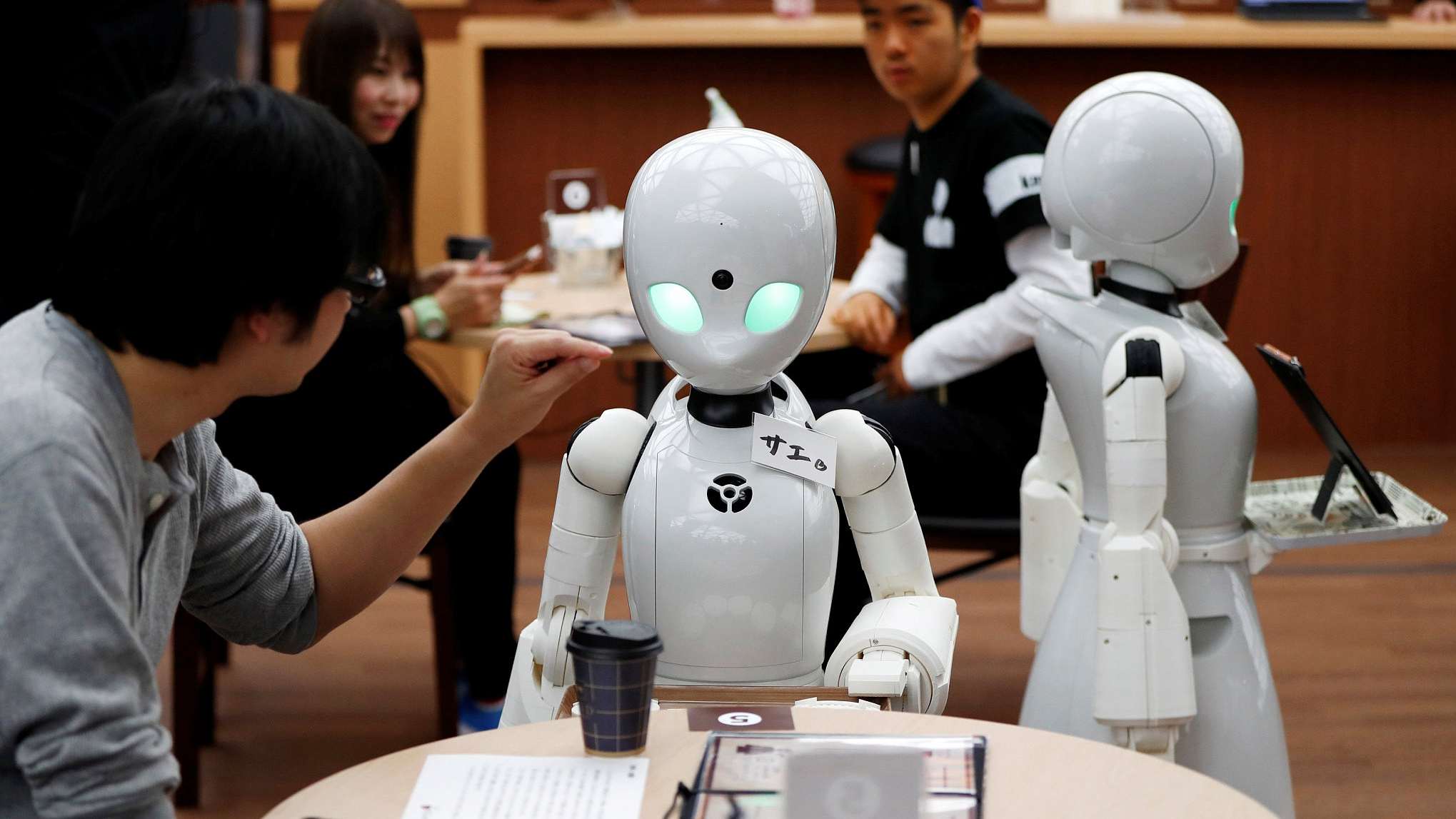
Customers in a café are served by five robot waiters that are 1.2 meters tall, named OriHime-D, and are actually remotely controlled by disabled people. /VCG Photo
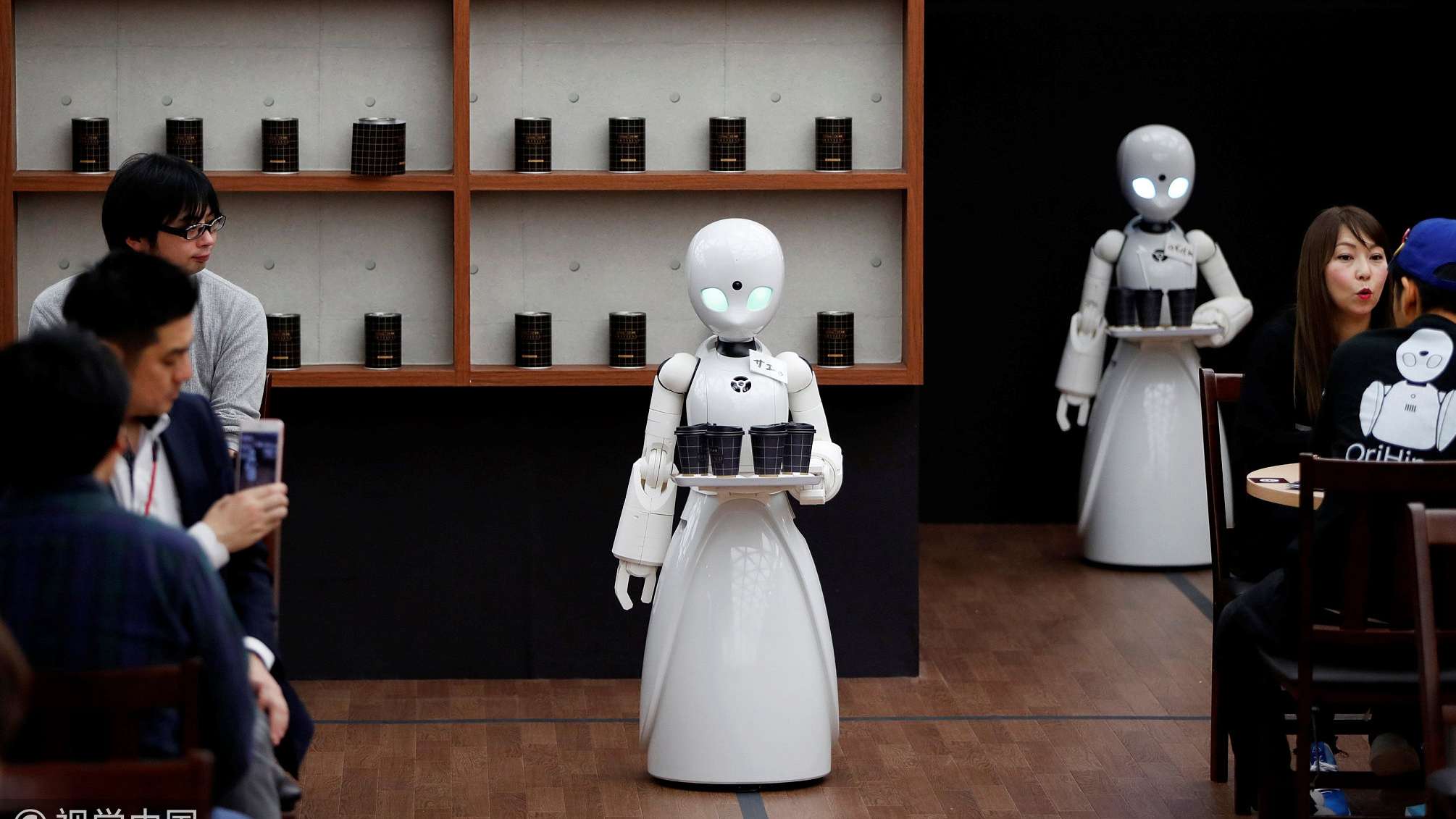
The cafe, which opened its doors in Tokyo's Minato Ward, is implementing a trial where the robots serve customers by the disabled at home. /VCG Photo
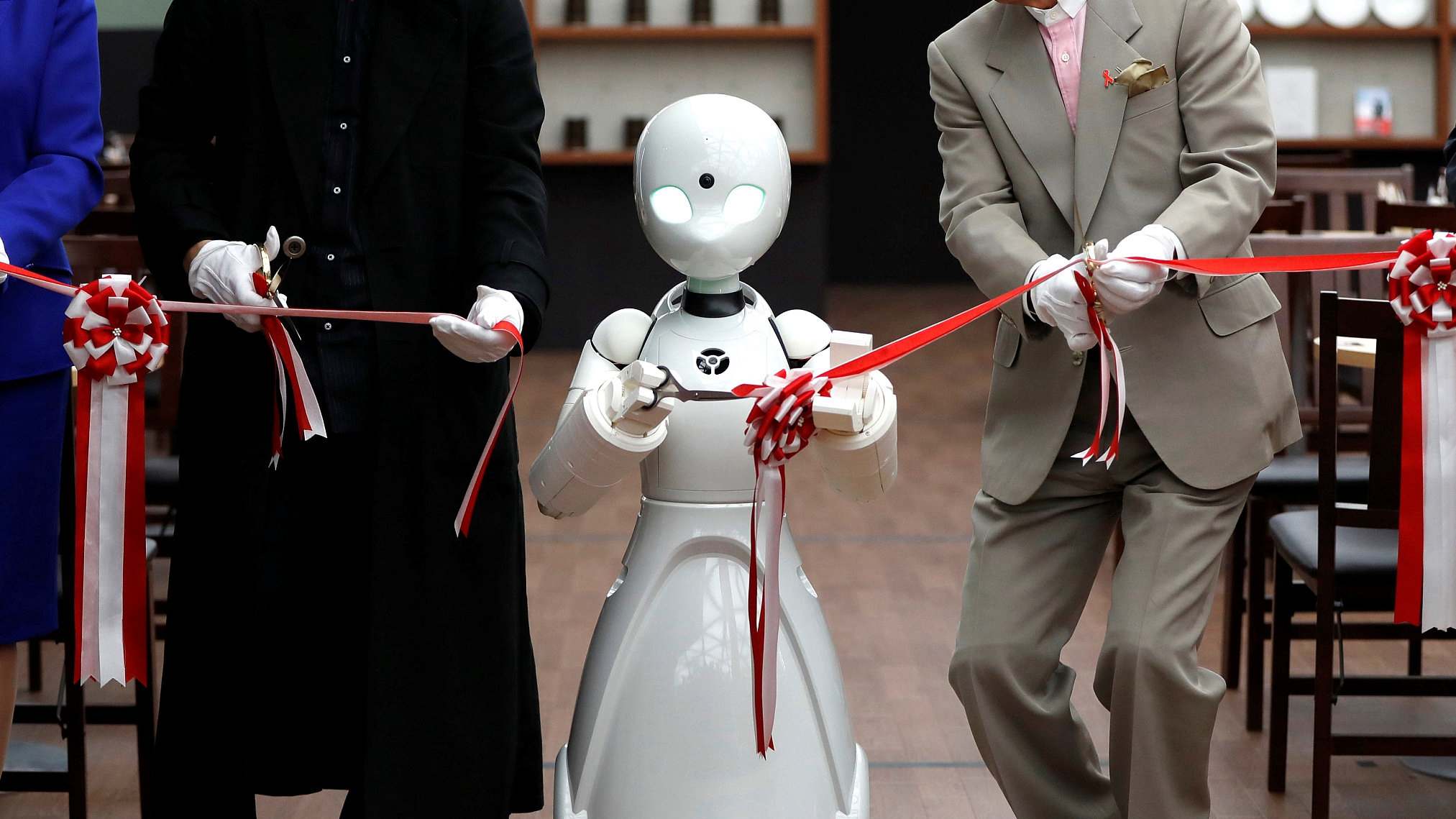
"These robots enable (disabled people) to engage in physical work and social participation," Kentaro Yoshifuji, CEO of Ory Lab Inc., told The Japan Times. /VCG Photo
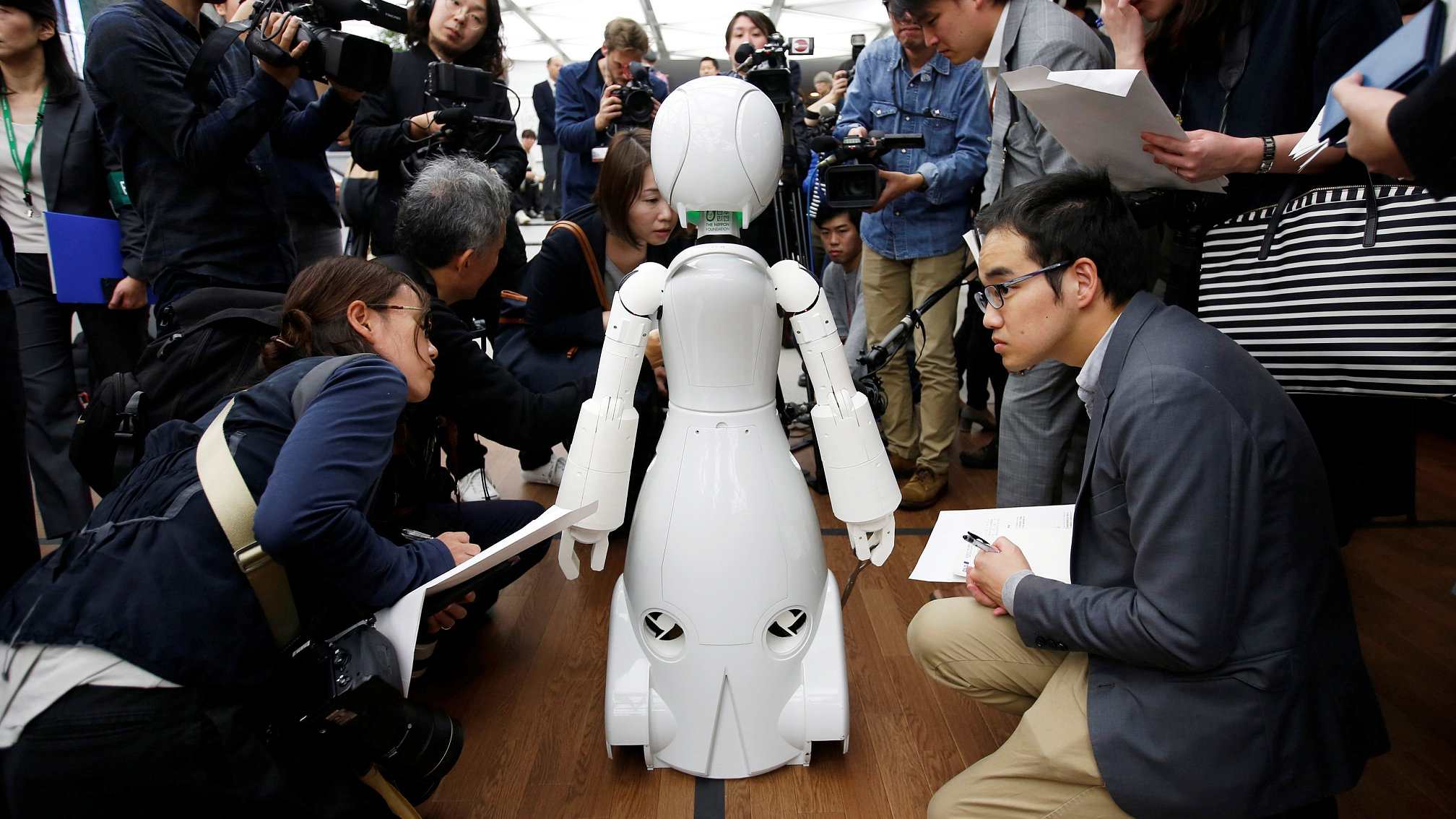
The robot controllers have diseases such as amyotrophic lateral sclerosis (ALS), a form of motor neuron disease. Ten people with ALS can earn ¥1,000 (around $8.82) an hour by controlling the robots. /VCG Photo
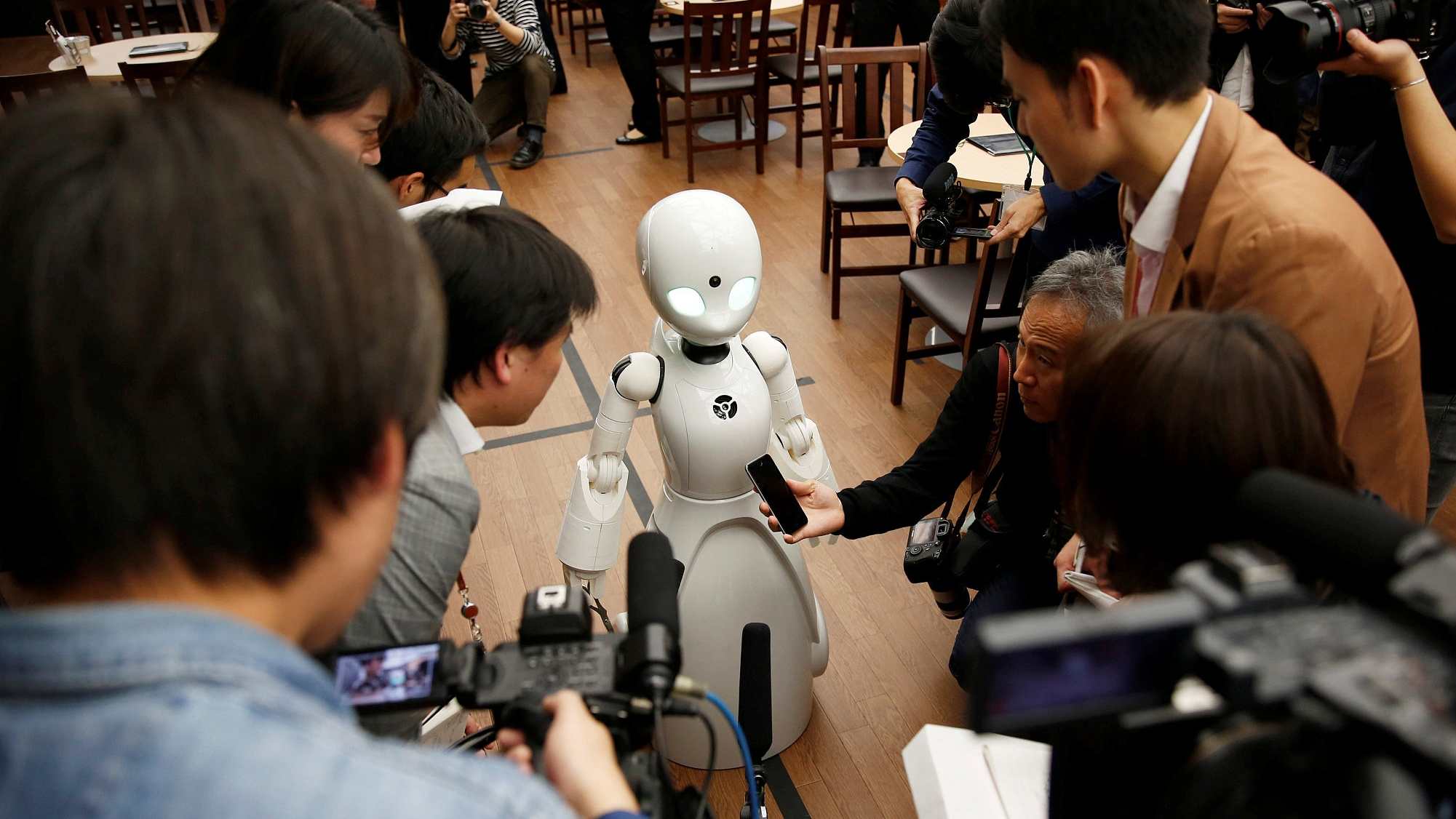
In addition to employment assistance, robots are increasingly being applied in Japan to elderly care. According to Japan Today, many caregiving institutions have used robots to help seniors move and keep them company. /VCG Photo

Copyright © 2018 CGTN. Beijing ICP prepared NO.16065310-3
Copyright © 2018 CGTN. Beijing ICP prepared NO.16065310-3